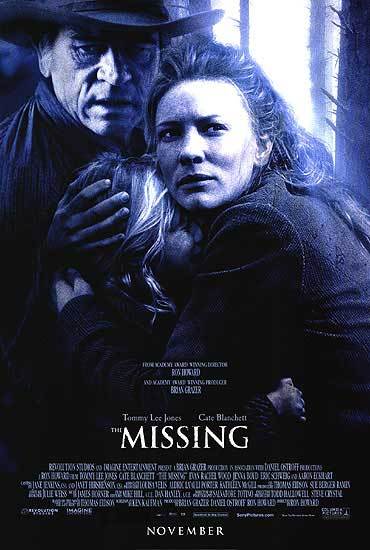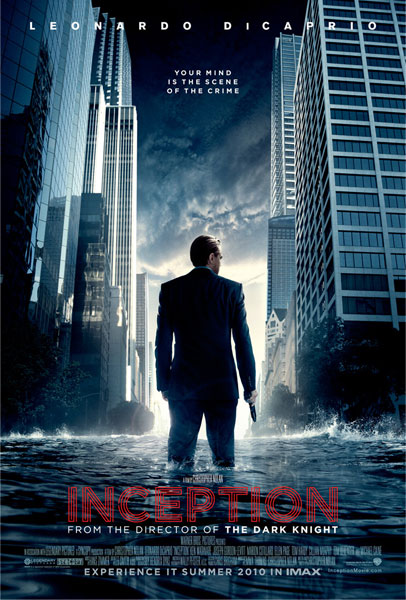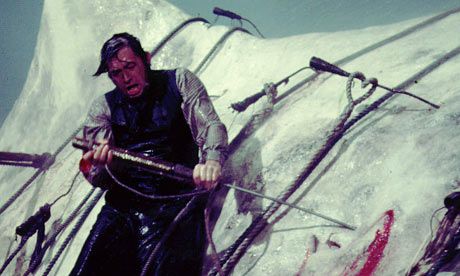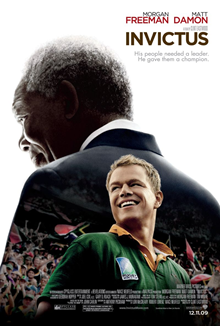From Japanese director Akira Kurosawa, Yojimbo was a huge success that led to a sequel and a remake three years later with 1964's Fistful of Dollars, the first of three Clint Eastwood/Sergio Leone pairings. 'Fistful' is the weakest of the so-called 'Dollars trilogy,' but it's still an entertaining movie and is a good jumping off point into the spaghetti western genre. And almost scene for scene as I found out, Fistful doesn't divert from the source movie. But almost from the start, I was bored and struggled getting into it. I can only chalk that up to knowing exactly where the story was heading. Let's think this over some.
Set in Japan in the late 1800s, a samurai named Sanjuro (Toshiro Mifune) walks into a desolate town to find a situation ripe for the picking that could make him a very rich man. The samurai visits a restaurant run by Gonji (Eijiro Tono) who fills him in on everything he should know. The town is run by two men, an older gangster named Seibei (Seizaburo Kawazu) who runs the local brothel and Ushitora (Kyu Sazanka) who sells sake from his brewery. Both sides have offered jobs to anyone who will work for them, each side accumulating a gang of low-lifes and thugs. Sanjuro steps right into the middle of the situation, doing his best to have each gang wipe the other one out, all the while being paid for his services.
As I've tried to watch more movies from outside the U.S., I've yet to struggle with a movie because of subtitles -- I typically groan when people say they don't want to watch a movie because they'll have to read -- but I struggled here. I can attribute some of that to the setting, but it's more than that. I have no background with any of the cast other than Mifune, and everyone else is dressed in a similar fashion. So when names start getting thrown around, I had trouble keeping things straight about who hates who and why. Thankfully I've seen Leone's 'Fistful' because otherwise I would have been completely lost. I don't mean to sound like that ignorant American reviewer, but I had trouble differentiating the cast and in general, keeping up.
Of the handful of Kurosawa movies I've seen, I have never been able to call the director boring in his techniques, but for Yojimbo I'm awfully close. He films in black and white -- which is fine -- but the one-street set starts to run together. Everything looks the same and eventually looks boring. I don't know if shooting in color could have helped, but that's just an idea. Kurosawa is a patient filmmaker, letting characters and scenes develop at their own pace, but that pace here is incredibly slow. 'Fistful' at 99 minutes is shorter than Yojimbo's 110 minutes, but the difference is huge in terms of pacing and any sort of energy. Shots go on and on without an end in sight.
The bright spot for me is not surprisingly Kurosawa favorite, Mifune as Sanjuro, the wayward samurai traveling the roads of Japan with his sword and little else. While everyone else around him acts in this over the top, very theatrical style, Mifune is calm to the point where he even looks bored in certain parts. He's clearly an inspiration for Eastwood's laid back, laconic character in the Dollars movies. Like few other movie stars, Mifune has that ability to force everyone watching the movie to keep their eyes on him and only him. A huge physical, intimidating presence on-screen, the star also handles his own stunts -- a few carefully choreographed sword fights that are amazing in their realism. I didn't really care for the movie, but I'm always going to recommend Toshiro Mifune.
Because everything I read about Yojimbo raved about the movie, I felt like I missed something on first viewing. That many people don't call a movie a classic for nothing. The potential is certainly there, but I struggled to get through this one. There's always positives, especially Mifune and Tatsuya Nakadai as a gun-toting samurai, but there are more negatives...at least for me. A disappointing end result for me, but maybe one I'll revisit in the future.
Yojimbo <----trailer (1961): **/****


























